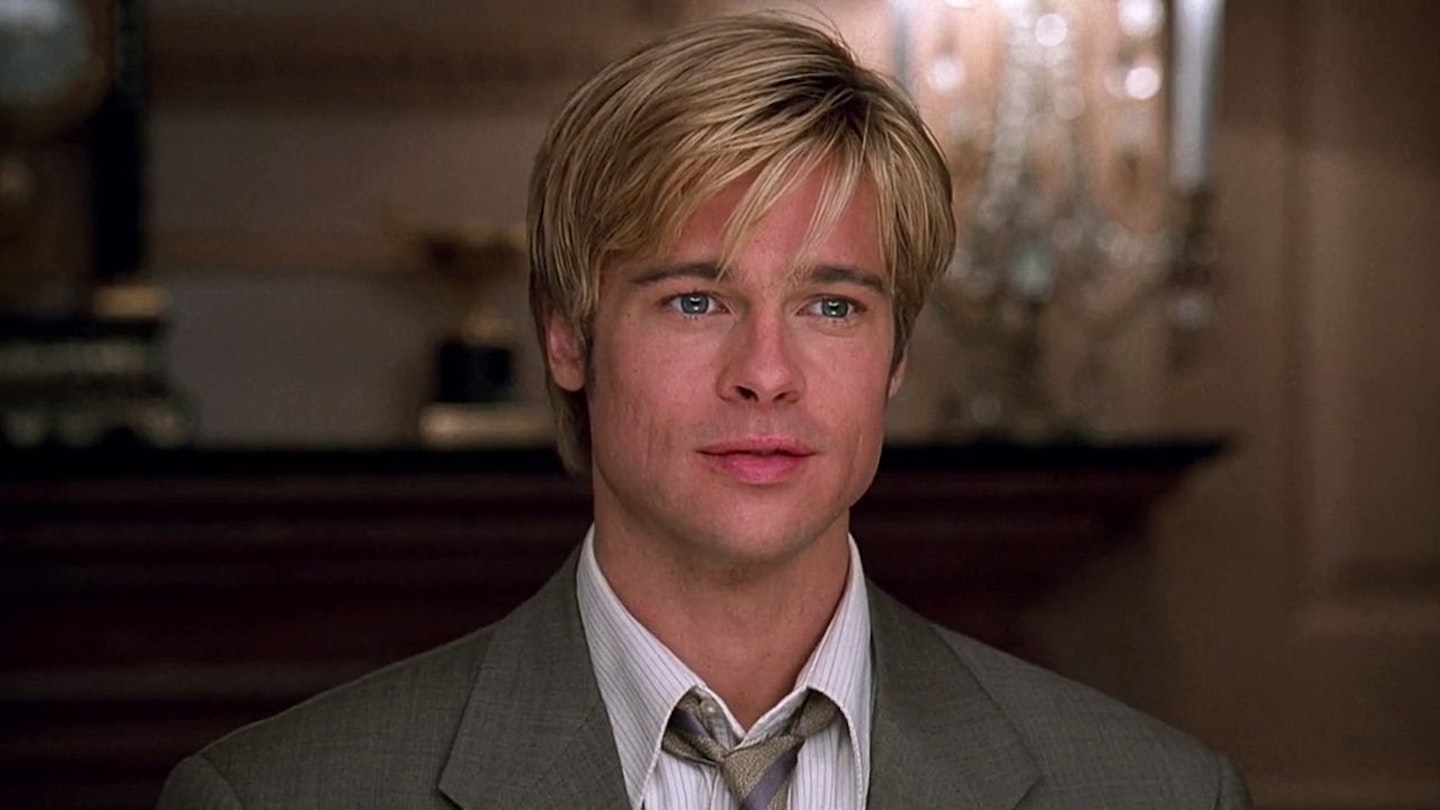Tipping its good looking head to a brace of current Hollywood vogues — remaking a classic (of sorts) and clocking in almost at a swollen three hours - Martin Brest's puffball metaphysical daydream endeavours for big themes but only delivers pleasant whimsy. The much trimmer (78 minutes) Death Takes A Holiday (1934) is the progenitor, suggesting the curious premise of Death (i.e. the Grim Reaper) taking on human form to dally among humankind for a while. In the original his motive was to discover why he is feared so much, here there seems no more to his arrival than boredom, a chance to sample the delights that a full quota of senses allows him and to hit upon the nearest babe.
Playing the great mortician is a beach blond Brad Pitt, who strains to give him an outlandish Rainman shtick, all clockwork twitches, clucking speech and an attractive wide-eyed vulnerability. He's nabbed the body of a recently deceased lawyer replete with those looks (clever Death) and chosen the ailing billionaire Bill Parrish (Hopkins) as his guide on Earth. Then in virtual slow motion, amid a slew of soft-lit New York finery (he's also savvy enough to sample humanity in the comfort zone of the Masters Of The Universe), Death takes his holiday. It's a familiar fish-out-of-water spiel — experiencing peanut butter, table manners, corporate wrangles and "true love" wrapped in a perpetual veil of incredulity — but brimful of comic value. However, we are in post-Titanic times and the main matter is a doomed romance. Death, temporarily rechristened Joe Black, falls for Parrish's supine doctor daughter Susan (the gaga Forlani) — she digging his oddball honesty, he swept away in a giddy schoolboy daze. It's tenderly done stuff, all the while nagged by those poignant (un)realities, but achingly long-winded and disguising what ultimately amounts to a peculiarly upmarket spin on necrophilia in an orange-hued soft focus.
The film becomes so obsessed with the heavy-lidded stares of its pretty leads that it completely squanders Hopkins. As beautifully crisp and effortless as ever, he charges events with the true nobility of a soul readying himself for death. The script, though, marginalises his quiet acceptance, reducing his contribution to sporadically Pitt's straight man or Forlani's jealous father. When accompanying his illustrious co-star Pitt shines, punctuating his quirky wonderment with flashes of icy darkness if Parrish dares to question the whole deal. Joe Black revealing his true colours.
Meet Joe Black finally cheats on its complications, slipping uncomfortably between the supernatural question marks and any deeper emotional tangles to deliver no more profound a message than to grab life while we can. The reality of all this posturing is simply an overblown romance fused to a far more invigorating comedy of manners, revealing in its leading man a surprising knack for comic timing. At half its length it would have been twice the movie.
